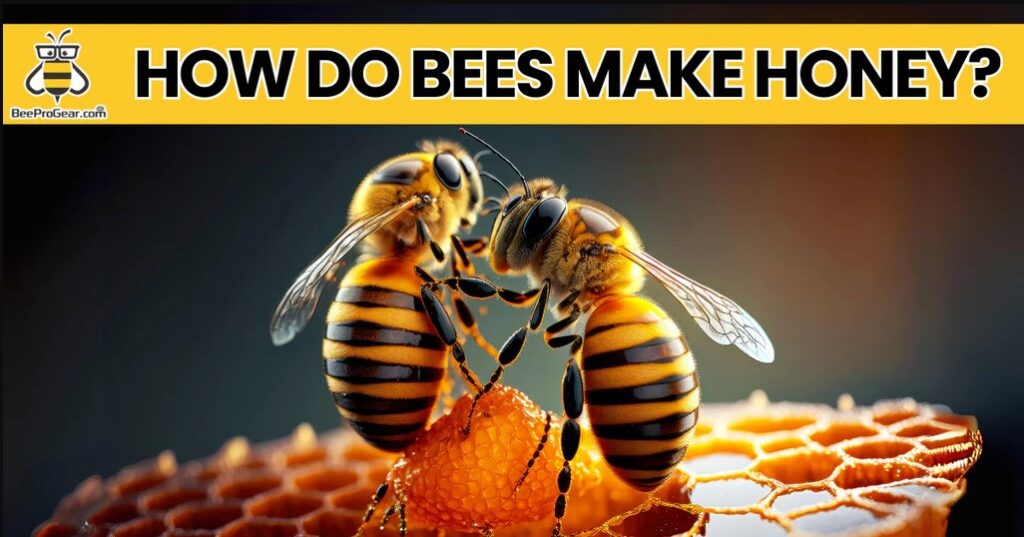

Honey is one of nature’s sweetest and most versatile gifts, cherished by humans for centuries. But have you ever wondered why bees make honey? Let’s explore the fascinating reasons behind this remarkable process.
Honey: A Survival Necessity
Bees make honey primarily for survival. Honey serves as their main food source, especially during colder months when flowers are scarce, and nectar is not available. Worker bees collect nectar from flowers during the warmer months and convert it into honey, which they store in their hives for future use.
Energy for the Hive
Bees are highly active creatures. From flying long distances to gathering nectar and pollinating plants, they expend a tremendous amount of energy. Honey provides the carbohydrates they need to fuel their daily activities. A single bee can fly up to 5 miles in one trip, making honey an essential energy booster for their busy lives.
Winter Preparation
During winter, bees cannot forage for food as flowers are not in bloom. The stored honey in their hive becomes their primary source of nutrition. A colony of bees needs around 20-30 pounds of honey to sustain itself through the winter.
How Do Bees Make Honey?
The process of making honey is a collaborative effort among worker bees:
- Nectar Collection: Bees collect nectar from flowers using their long tongues and store it in their honey stomachs.
- Enzyme Transformation: The nectar is mixed with enzymes in the honey stomach, breaking down complex sugars into simpler ones.
- Depositing in the Hive: The processed nectar is regurgitated into honeycomb cells back in the hive.
- Evaporation: Bees fan the nectar with their wings to reduce its water content, thickening it into honey.
- Sealing with Wax: Once the honey is ready, bees cap the honeycomb cells with wax to preserve it.
Benefits of Honey for Bees
- Nutrition: Honey provides essential carbohydrates, vitamins, and minerals.
- Long-Term Storage: Unlike nectar, honey is less prone to fermentation and spoilage, making it a reliable food source.
Honey’s Importance to Humans
While honey is vital for bees, it also plays an important role for humans. Known for its sweetness, honey is a natural energy source and has antibacterial, antifungal, and antioxidant properties. Harvesting honey responsibly ensures that bees are left with enough to sustain their hives.
Bees make honey as a means of survival, ensuring they have a reliable food source year-round. This process not only benefits the bees but also contributes to the ecosystem by supporting pollination and providing humans with this golden treasure. By understanding and appreciating the efforts of these incredible creatures, we can work towards protecting their habitats and ensuring their survival.
